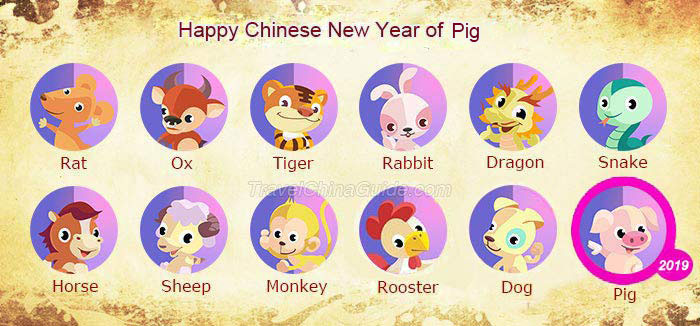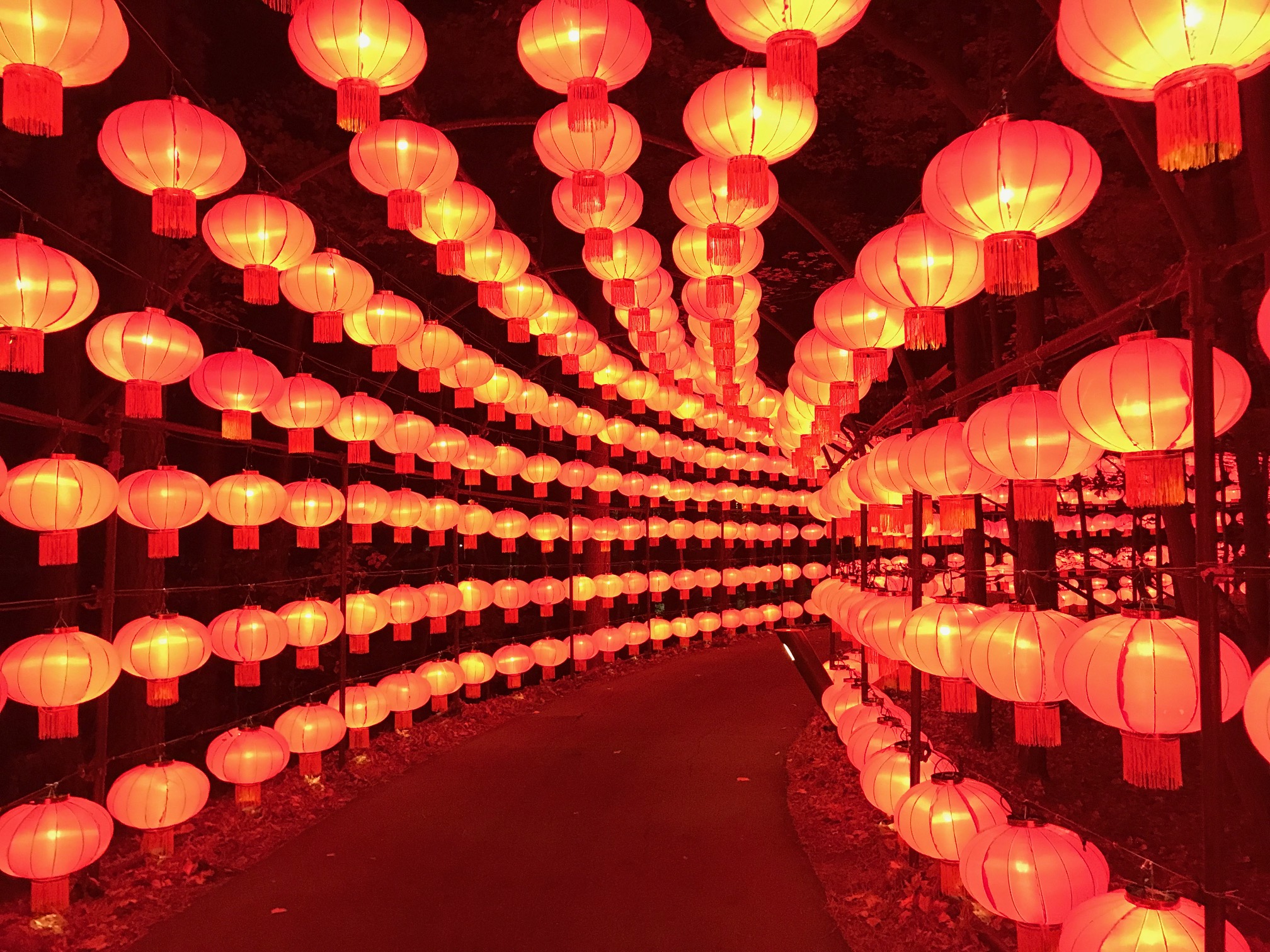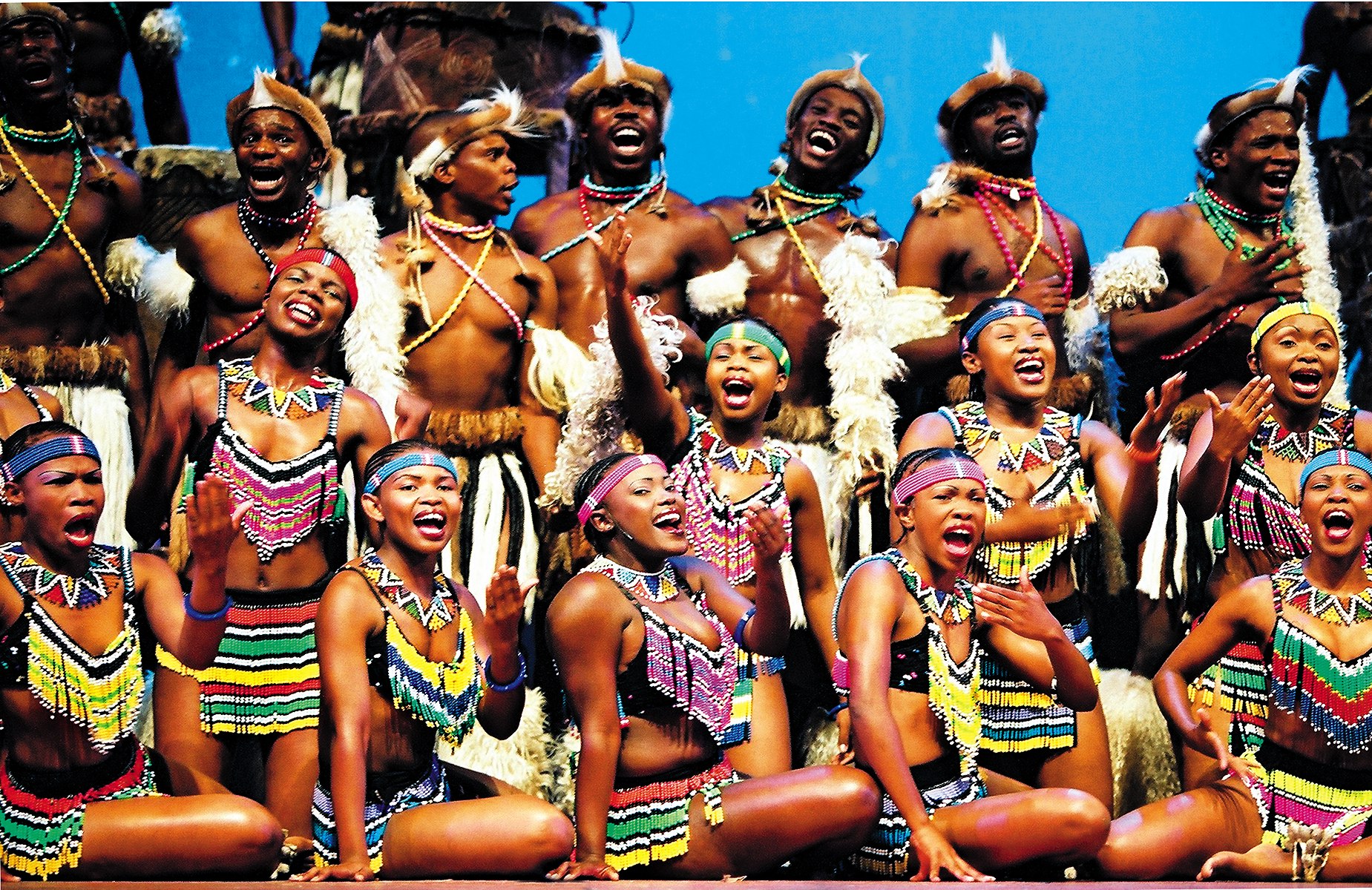In China each year is represented by one of the 12 zodiac animals – Rat, Ox, Tiger, Rabbit, Dragon, Snake, Horse, Sheep, Monkey, Rooster, Dog, and Pig. Chinese New Year 2019 is the year of the Pig. The animal sign is believed to dominate the year and influence the character and destiny of people born in the year. Every Chinese knows his or her own animal sign. These are core heritage that no form of civilization can utter or remove. Chinese New Year festival falls on Feb. 5 in 2019 being the Year of the Pig according to the Chinese zodiac, which features a 12-year cycle with each year represented by a specific animal. People born in the Years of the Pig including 1935, 1947, 1959, 1971, 1983, 1995, and 2007 will experience their Zodiac Year of Birth (Ben Ming Nian).

@TravelChinaguide
China has 56 ethnic groups and is listed among the four ancient civilization nations in the world. Over 5000 years history has witnessed the creation of many Chinese traditional festivals. Chinese New Year known as “Chinese Spring Festival” among many others, has a long history in China as the most important festival for the Chinese people when all family members get together, just like Christmas in the West. All people living away from home go back making the period the busiest time for transportation systems of about half a month from the Spring Festival. Airports, railway stations, and long-distance bus stations are crowded with home returnees.
China during this period is dominated by iconic red lanterns, loud fireworks, massive banquets, and parades and the festival even triggers exuberant celebrations across the globe. According to their origins, China’s festivals mainly fall into three categories, agricultural, religious and social festivals. While according to their contents, Chinese festivals can be divided into five kinds, including agricultural, sacrificial, commemorative, recreational and celebratory festivals.
In China, an old saying goes “Food is the first important thing for people” while a modern saying “3 pounds weight gain at every festival”. Both show the Chinese people’s love for food. They are very passionate and fastidious about cooking coupled with the basic requirements of appearance, smell, and taste.
On the first three days of the festival, people will visit their close relatives and best friends, exchanging greetings and presents, which is known as the “New Year’s Visit”. The young generation are given the red envelop from their elder generation. There are performances of dragon dancing, lion dancing and recreational parades in the street by diverse troupes. The fifth day is known as ‘Po Woo’. On this day people stay home to welcome the god of Wealth. No one visits relatives and friends because it will bring both parts bad luck. From the sixth day to the tenth day, people either go out to visit their relatives, friends or go to the temples to pray for good fortune and health in the coming year.
Furthermore, the seventh day is the day for farmers to display their agricultural products. The day also considered as the birthday of human beings. Noodles are eaten to promote longevity.
As to the ninth day, people present the offering to the Jade Emperor, the god of the heaven in Chinese Legend. When it comes to the tenth day, relatives and friends should be invited home to have dinner. After such a long time’s sumptuous feast, on the 13th day, people are supposed to have something simple and light to cleanse their body system to retain their health.

By Diane Wilson and Darin Saavedra
On the final day of the festival or the 15th day of the first lunar month, a lantern festival is held. Families and organizations from across China and Chinese communities place lanterns along the street for people to enjoy. Some are simple while others are quite elaborate. Some people also hang riddles along the streets for visitors to solve. If a person can solve the riddle, he or she goes to the owner of the riddle to claim a prize. Prizes usually come in the form of small trinkets, baked goods, or candy.
There will never be a soothing song regardless of all that jazz in the modern cities, as healing and meaningful as the lyrics of one’s traditional heritage which, makes one experience a deafening silence when whispered, which nourished the soul with peace.
Culture and heritage preserved bring a sense of belonging to people ages after ages. This has been the source of strength, competition to the Chinese people in recent times. Souls across the world drowning in the confusion of lost value because their history was written in sand “in medias res” due to an unfortunate circumstance or occurrence and even less documentation. It is time to embrace our languages, traditions, and heritage.

Image from iesa.edu

Image from culturextourism

2 comments
My country has alot to learn from this..
Yes, indeed many African countries have to learn from this.